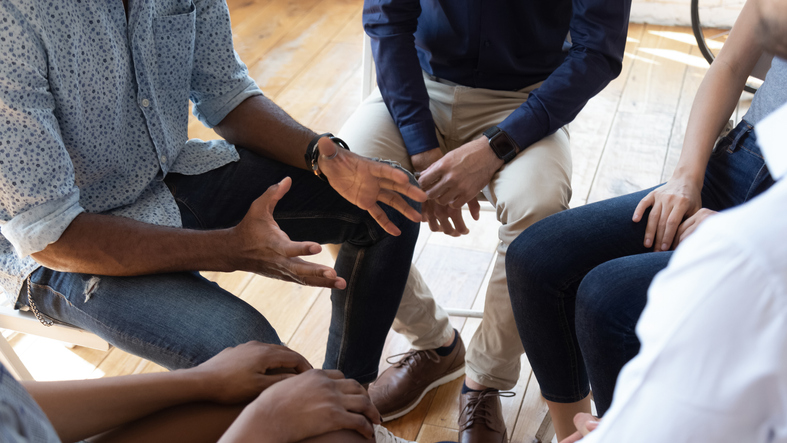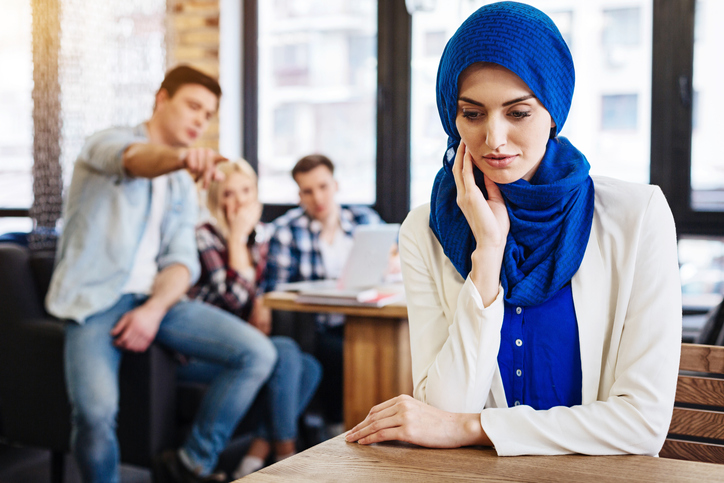
There is a strong link between racism and issues with mental health, such as stress and anxiety. In fact, “People of color as a whole are… 10% more likely, and black people are 20% more likely, than white people to report serious psychological distress.” (Gattuso, 2020).
For counselling therapists, helping people to heal from the effects caused by racism and prejudice, as well as helping to improve the societal conditions which perpetuate them, is essential. Here are some of the ways counselling therapists can support clients who experience racism, and what they can do to help enact meaningful and lasting change.
First, Counselling Therapists Need to Understand What Racism Entails, and How to Identify It
Racism can encompass a variety of words and actions, and may be the result of the aggressor’s implicit bias, which they may not acknowledge that they hold (“Racism, 2015”). Racism can show itself in the form of overt macroaggressions (eg. physical assault, slurs, etc.), or covert microaggressions that are more subtle in nature (eg. lack of diversity in a workplace, assumptions made due to a person’s race, etc.) (Graham-LoPresti, Abdullah, West, & Calloway, 2017). Sometimes, microagressions may not necessarily be intentional. However, they are nonetheless harmful.

It is important for counselling therapists to note that discrimination also affects the field of mental health as well. A 2008 study published in Health Affairs states that members of the African-American community are more likely to end their mental health treatment earlier than the average white American, and that “37.6% of Whites, but only 22.4% of Latinos and 25.0% of African Americans, receive treatment” for addiction or mental health issues (McGuire & Miranda, 2008). Part of this may be due to implicit biases carried out by therapists, who may unknowingly perpetuate stereotypes or enact microaggressions.
Experts have also noted that “Access to care is also hindered by the scarcity of Black mental health therapists… as well as the fact that the services remain largely unaffordable for many members of the Black communities.” (Ngabo, 2020)
For therapists, it’s important to acknowledge and correct any implicit biases they themselves may hold, and understand the greater nuances and complexities of their attitudes toward race. This includes any stereotypes they unknowingly harbour, or any other microaggressions they may find themselves guilty of in their past (Meyers, 2017). For students training to become a counselling therapist, it is important to understand these issues, so that they themselves do not unintentionally perpetuate them.
How Racism Affects Mental Health, Explained for Students Therapist Training
Racism has a profound impact on a person’s mental health. These effects can include feeling a lack of control over one’s life, the internalization of negative beliefs, and avoidance, as well as increased anxiety and hypervigilance (Graham-LoPresti, Abdullah, West, & Calloway, 2017). In addition, “The overwhelming nature of these symptoms can lead to an over-identification or entanglement with these painful emotions, thoughts, and feelings.” (Graham-LoPresti, Abdullah, West, & Calloway, 2017).
Mental health professionals have also noted that “the continued effects of racism, going back centuries, contribute to increased levels of anxiety, PTSD, depression and other possible mental health issues…” (Ngabo, 2020)
In addition, racism can not only affect someone on a psychological level, but also physically. Because stress resulting from experiencing racism can heighten inflammation and cortisol levels, this can eventually lead to medical conditions like heart disease and diabetes, which can in turn lower life expectancy (Engel-Smith & Newsome, 2020).
What a Counselling Therapist Can Do
Once students in therapist training have understood what racism is, and how it can impact one’s mental well-being, the next step is to understand how to help clients and enact lasting change within their communities.
For example, counselling therapists can encourage clients to practice compassion toward themselves, as well as accept their emotional reactions to racism rather than avoiding them (Graham-LoPresti, Abdullah, West, & Calloway, 2017). Building a support network, as well as positive affirmations, can also help to combat internalized negative feelings (Williams, 2019). For example, a client may respond “well to strong initial affirmation of her ethnoracial identity, as well as values she identified with that were part of her cultural heritage.” (Williams, 2019). Empowering clients to enact and stand up for their values can also help to reclaim a sense of agency (Graham-LoPresti, Abdullah, West, & Calloway, 2017).
In addition to helping their clients during sessions, counselling therapists can increase their involvement in their respective communities. For example, they can advocate for improved and more equitable access to mental health services for marginalized populations, including the use of teletherapy and therapy apps (Gattuso, 2020). They can also actively collaborate with community organizations dedicated to fighting racism (Gattuso, 2020).
Although therapy by itself may be a band-aid solution for a much bigger and more complex societal issue, the actions of a counselling therapist can help move the healing process forward, and cultivate a better society for everyone in ways that are meaningful and enduring.
Do you want to make a difference after your counselling therapist courses?
Works Cited
Anderson, S. V. (2016, March 26). 8 ways to meaningfully support social justice movements. Retrieved from https://mashable.com/2016/03/26/social-justice-get-involved/
Baoku, H. (n.d.). Challenging Mental Health Stigma in the Black Community. Retrieved July 27, 2018, from https://www.nami.org/Blogs/NAMI-Blog/July-2018/Challenging-Mental-Health-Stigma-in-the-Black-Comm
Barnett, J. C., & Vornovitsky, M. S. (2016, September). Health Insurance Coverage in the United States: 2015. Retrieved from https://www.census.gov/library/publications/2016/demo/p60-257.html
COVID-19 deaths analyzed by race and ethnicity. (2020, June 10). Retrieved from https://www.apmresearchlab.org/covid/deaths-by-race
Dalencour, M., Wong, E. C., Tang, L., Dixon, E., Lucas-Wright, A., Wells, K., & Miranda, J. (2017). The Role of Faith-Based Organizations in the Depression Care of African Americans and Hispanics in Los Angeles. Psychiatric Services, 68(4), 368–374. doi: 10.1176/appi.ps.201500318
Dr. Paul explains effects of racism and social inequalities on health. (2020, June 8). Retrieved from https://www.cornwallseawaynews.com/2020/06/08/dr-paul-explains-effects-of-racism-and-social-inequalities-on-health/
Engel-Smith, L., & Newsome, M. (2020, June 8). The impact of racism on African Americans’ health. Retrieved from https://www.northcarolinahealthnews.org/2020/06/08/racism-and-african-americans-health/
Gattuso, R. (2020, June 1). How Mental Health Activists Are Fighting Racism. Retrieved from https://www.talkspace.com/blog/how-mental-health-activists-are-fighting-racism/
Graham-LoPresti, J. R., Abdullah, T., West, L. M., & Calloway, A. (2017, March 16). How Black Americans Can Cope With Anxiety And Racism. Retrieved from https://www.anxiety.org/black-americans-how-to-cope-with-anxiety-and-racism
Harmon, A. (2020, January 20). How Much Racism Do You Face Every Day? Retrieved from https://www.nytimes.com/interactive/2020/us/racism-african-americans-quiz.html
McGuire, T. G., & Miranda, J. (2008). New evidence regarding racial and ethnic disparities in mental health: policy implications. Health affairs (Project Hope), 27(2), 393–403. https://doi.org/10.1377/hlthaff.27.2.393
Meyers, L. (2017, January 25). Facing the realities of racism. Retrieved from https://ct.counseling.org/2017/01/facing-realities-racism/
Ngabo, G. (2020, June 4). George Floyd, anti-Black racism and your mental health. These are some of the options if you’re struggling. Retrieved from https://www.thestar.com/news/gta/2020/06/04/george-floyd-anti-black-racism-and-your-mental-health-these-are-some-of-the-options-if-youre-struggling.html
Primm, A. B., Vasquez, M. J., Mays, R. A., Sammons-Posey, D., McKnight-Eily, L. R., Presley-Cantrell, L. R., McGuire, L. C., Chapman, D. P., & Perry, G. S. (2010). The role of public health in addressing racial and ethnic disparities in mental health and mental illness. Preventing chronic disease, 7(1), A20.
Racism. (2015, August 8). Retrieved from https://www.goodtherapy.org/blog/psychpedia/racism
Smith, W. A., Allen, W. R., & Danley, L. L. (2007). “Assume the position…You fit the description”: Psychosocial experiences and racial battle fatigue among African American male college students. American Behavioral Scientist, 51(4), 551–578. doi: 10.1177/0002764207307742
Stieg, C. (2020, June 7). These are challenging times – here’s how to get free mental health assistance. Retrieved from https://www.cnbc.com/2020/06/07/how-to-get-free-mental-health-resources-for-stress-anxiety.html
Wenzel, A. (2017). The Sage encyclopedia of abnormal and clinical psychology. Los Angeles: SAGE reference.
Williams, M. (2019) Uncovering the Trauma of Racism: New Tools for Clinicians. Psychology Today. Retrieved from: https://www.psychologytoday.com/ca/blog/culturally-speaking/201901/uncovering-the-trauma-racism-new-tools-clinicians









